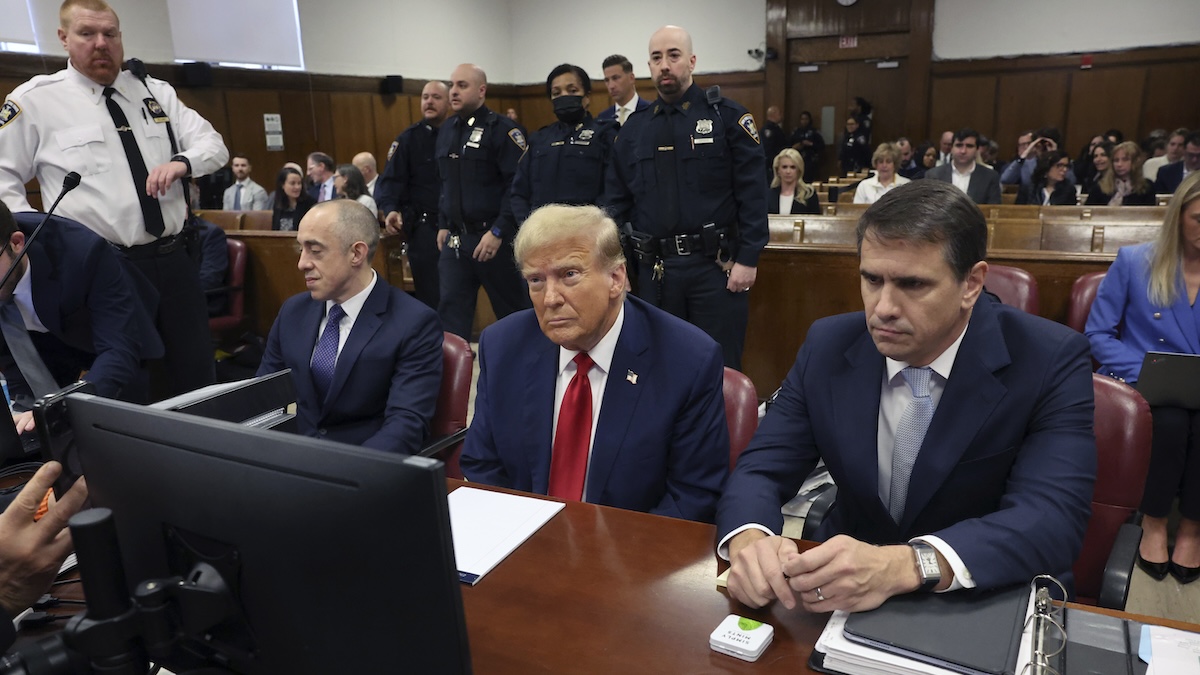George Allen is on the comeback trail.
Six years ago, the popular former governor of Virginia hoped for an easy Senate re-election as he eyed a 2008 presidential run. But the unlikely Democratic candidacy of Ronald Reagan’s Navy secretary, Jim Webb, and Allen’s controversial reference to Webb volunteer S.R. Sidarth as “macaca,” put an end to all that.
But that was then. While 2006 was a Democratic year across the U.S., and Barack Obama carried Virginia two years later, the commonwealth swung back to the red side last year. And with Obama’s approval rating in Virginia hovering in the high 40s, the state will be in play in 2012, from the top of the ballot on down.
As if that’s not enough for Virginia Democrats to worry about, Webb may not even run -- and there’s no other Democrat on the horizon who seems likely to hold the seat. Webb loathes campaigning and the fundraising circuit, and seems eager to get back to his career as a novelist. Former governor Tim Kaine, the only other Democrat with a wide statewide following, is uninterested.
So it’s looking good for Allen, right? Not necessarily.
Though the GOP nominee may start the general election campaign with a slight advantage if Webb runs -- and a big one if he doesn’t -- Allen isn’t the only Republican who recognizes that. And there are others who are interested in the job.
Tea Party activist Jamie Radtke has already entered the race, and Bob Marshall, a leading conservative in the Virginia legislature, is considering a run. But Allen’s biggest threat may come from Prince William Board of County Supervisors Chairman Corey Stewart, a likely candidate who would have the advantage of both conservative credentials and northern Virginia ties.
Politics
Political news from the U.S. Capitol, White House and around Washington, D.C., Maryland and Virginia
“I think that George Allen says one thing and then does another,” Stewart told NBC Washington. “He talks about being a conservative, he talks about being limited government, but then he voted for Medicare Part D, he voted for No Child Left Behind, he did nothing to curtail the expansion and the growth of the federal government during his tenure in the Senate.”
“He was a very good governor of Virginia,” Stewart continued. “But I think when he got to the U.S. Senate, I think that Washington changed him more than he changed Washington.” Stewart also warned that “the whole ‘macaca’ episode and all that” would come up in a general election campaign with Allen as the GOP nominee. “George Allen would be a terrible candidate for the Republican Party in 2012.”
Radtke, who is little known statewide but who already has some support from Tea Party folks across the country, said that in his first Senate campaign, Allen “pledged his commitment to a balanced budget, reducing spending and reducing the debt. Then he went to Washington and voted for spending measures that increased our national debt by $3.1 trillion and voted for $90 billion in earmarks. Now, 12 years later, George Allen is making the same promises again.”
Allen has the early advantage. Republicans will choose their nominee in a primary, not at a convention, and Allen will benefit from his name recognition and donor base. National Republican powers will also want to rally behind a candidate who seems likely to retake the seat, particularly if the personally popular Webb does seek a second term.
The breadth of the opposition could work to Allen’s advantage as well. While a single conservative challenger would stand a good chance of beating Allen in a primary, Marshall, Radtke, and Stewart would all be competing for the same voters and could split the result. If there is a multi-candidate primary, and Allen ends up winning by a small margin, conservatives may end up wishing they had united around one challenger early on.
Follow P.J. Orvetti on Twitter at @PJOinDC



